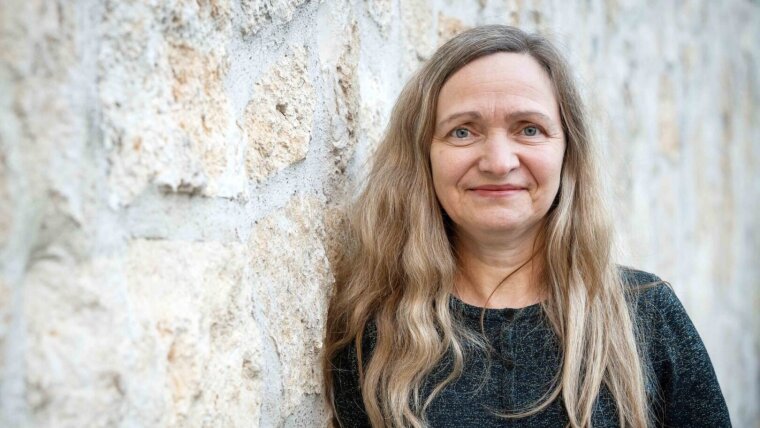
- Awards and Personnel
Published: | By: Stephan Laudien
Most people are probably familiar with witches and magic from classic fairy tales or, more recently, from the Harry Potter universe. But who would have thought that Berlin has the highest density of witches in Central Europe? These modern or neo-pagan witches are characterised by a strong devotion to nature, they represent feminist positions and are at home in different social milieus. "Witches want to be found, they don't proselytise," says Prof. Dr Victoria Hegner from Friedrich Schiller University Jena. The new Jena professor of cultural anthropology has therefore mingled with the witches, accompanied them during their rituals and thus conducted participatory research. "These witches can be understood as a feminist revolt against the patriarchy," says Professor Hegner. The traditional term "witch" is reinterpreted in the process; "self-empowered woman" is more appropriate.
Jewish immigrants in the former centre of Nazi power
One of Victoria Hegner's areas of work is ethnographic urban research. "It's about the question of what characterises a unique urban culture," she says. How does History characterise a city, how can it be described through social structures? Victoria Hegner has investigated one particular aspect of urban history in Berlin and comparatively in Chicago: Jewish life and Jewish immigration. Victoria Hegner: "What does it mean for Jews to immigrate to the land of the perpetrators and to Berlin, the former centre of power of the National Socialists?" How do the long-established Jews manage to integrate the immigrants, even though the "newcomers" are in the majority? The research project was prompted by the influx of Jewish people from the Soviet Union and its successor states after the end of the GDR. At the end of the study, a doctorate was awarded under the title "Gelebte Selbstbilder. Gemeinden russisch-jüdischer Migranten in Chicago und Berlin". One of the exciting results is the realisation that secularisation is by no means progressing inexorably: "We have found a variety of new ways of religiosity and spirituality," says Victoria Hegner. In the face of climate change and species extinction, religions are struggling to find a new understanding of the world, she states. In Judaism, for example, the concept of "kosher" is being renegotiated, while in neo-pagan religions there is a desire to heal the perceived rift between humans and nature. According to the cultural anthropologist from the University of Jena, a lot is in motion. In some places, a handshake between the natural sciences and spirituality is being attempted.
New research in the "heart chambers of universities"
Victoria Hegner studied in Berlin. Born in the GDR, the 53-year-old suddenly had the freedom to study a subject of her choice. After initially choosing Egyptology as her favourite, she decided for ethnography (= cultural anthropology/ethnology) at Humboldt University. Berlin after the fall of the Berlin Wall was a wonderful place to experiment, with freedom even for unusual research projects. "Projects like 'the sound of the underground' taught me to see the world through different eyes," says Victoria Hegner. Study visits also took her to Toronto (Canada) for a year and to Duke University in North Carolina (USA) for six months. Today, as a teaching staff member, she passes on her knowledge to students. She believes it is important to treat students as equals, to take them seriously and to encourage them.
With her current research project, she has been accepted into the renowned Heisenberg Programme of the German Research Foundation (DFG). This means that her professorship will also be fully funded by the DFG for three years. Her current study is focussing on questions of equality: Victoria Hegner is planning an "ethnography of gender equality practice in academia". The subject of the study is appointment procedures at various institutions of higher education, which will provide insights into the "heart chambers of universities". The results promise to be exciting, without any magic or witchcraft.
Contact:
07743 Jena Google Maps site planExternal link